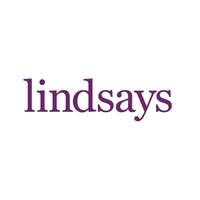
Kenny Gray, Partner in Lindsays’ Commercial Property team, highlights some practical points for business tenants to consider when planning how workplaces will operate when staff return.
The question of when our colleagues can return to their normal places of work as lockdown measures ease is a critical one. So too is that of how our workplaces will operate when they do.
It’s essential that managers are able to provide answers, particularly if you rent your building - or the space you share in it - as many Scottish businesses and charities do.
At a time when many feel personal anxieties about the threat of coronavirus as their thoughts turn towards returning from home offices or furlough, clear answers about physical arrangements can go a long way to providing reassurance.
When it comes to rented business accommodation, tenants are responsible for ensuring appropriate social distancing and hygiene arrangements within their own area. Landlords are responsible for the management of common areas and facilities.
So, key questions to ask include:
What are the access arrangements to the building?
Landlords are considering arrangements including leaving access doors open and locking revolving doors during peak hours to limit hand contact, introducing one-way systems and additional accesses. You should also be clear on arrangements for deliveries and may wish to clarify with your landlord what arrangements they have for screening their own visitors for coronavirus symptoms and tracing.
Do face masks need to be worn in communal areas?
Much depends on Government guidance. However, landlords may ask for masks to be worn where social distancing could prove problematic, such as staircases or corridors without one-way systems.
How will our lifts operate?
It’s likely that a maximum of one person at a time inside lifts will be the norm. Where two is possible, a partition could be installed.
What will arrangements for social distancing in specific shared facilities be?
These include the use of toilets, showers and the number of people allowed in at any one time. It’s worth asking about the likes of touch-free soap dispensers taps and whether paper towels will be provided should touch-activated dryers be disconnected. Capacity limits for waiting, breakout and dining areas may also be introduced.
How will cleaning be affected?
Many landlords are arranging more frequent cleaning of door handles, handrails, lift number plates and surfaces.
Will enhanced air conditioning operate?
Building-wide air conditioning may be run more intensively, with improved ventilation thought to reduce the transmission of Covid-19 in enclosed spaces.
Will I face additional service charges?
If your lease permits the landlord to charge for services provided in accordance with ‘good estate management’, they could pass costs on. But, if a tenant’s liabilities are limited it is possible the lease frees the tenant from the cost of specific services and/or puts an upper limit on how much service charge they are obliged to pay.
When it comes to all of this, it’s a good idea to check arrangements now.
Although a return to office working is currently being discouraged, we know the Government’s route map out of lockdown and should plan accordingly. With all of the financial pressures facing businesses, you do not want to face surprise last-minute costs or staff queries you are not prepared for.
As always, I would encourage an ongoing conversation with landlords to ensure issues can be resolved.
Kenny Gray is a Commercial Property Partner at Lindsays
0131 656 5698

Lindsays LLP
We are an award winning law firm offering a full range of legal services for individuals, families and businesses. Whether you need help on a specific issue, such as family law, employment, private letting or residential property or want to plan for the future, we provide expert advice and support.






























